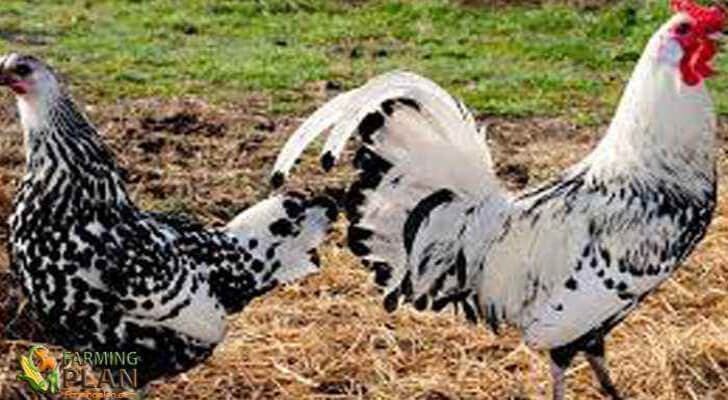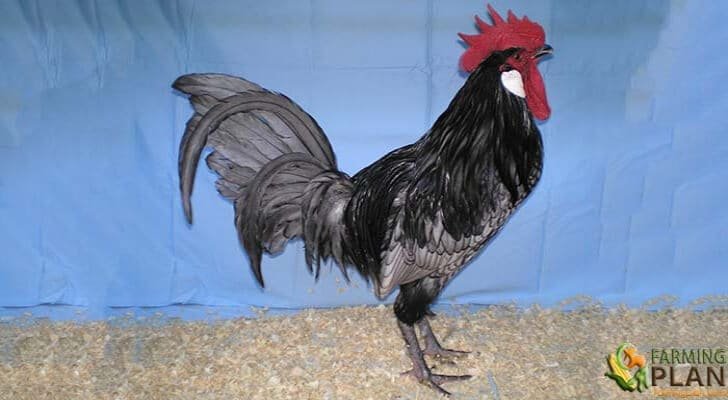Are you thinking of raising a Dutch Hookbill duck? If so, you’ve come to the right place! The Dutch Hookbill breed is an ancient and unique breed of domestic duck that has been documented since the 17th century. This guide will provide step-by-step instructions for successfully farming Dutch Hookbill ducks, from understanding their characteristics and how to prepare your farm for them up until the harvesting process. In this article we will discuss why these ducks stand out from other breeds, as well as biological requirements, feeding habits and considerations when buying into or breeding this rare species. We’ll also cover housing arrangements and common health issues associated with this unusual yet fascinating bird. So if you want to learn more about the art of Dutch Hookbills farming then read on!

History & Origin
The Dutch Hookbill Duck is a fascinating breed of domestic duck with a rich history and unique physical features. Originating in the Netherlands, these ducks were bred for their exquisite meat and prized eggs. Their curved bills and upright stance distinguish them from other duck breeds and make them a popular sight for birdwatchers and duck enthusiasts alike. Despite declining in popularity over time, there are still dedicated breeders and fans of the Dutch Hookbill Duck who appreciate their rich history and unique characteristics. It’s truly a special bird that never fails to captivate.
Characteristics
The Dutch Hookbill Duck is a unique breed. Known for its distinctively curved beak, this duck has an unmistakable appearance. Beyond its striking appearance, the Dutch Hookbill Duck is also known for being hardy and adaptable. This bird can thrive in a variety of environments, making it a popular choice for farmers and backyard breeders alike. Additionally, the Dutch Hookbill Duck is an excellent forager, able to locate food in areas that other ducks may overlook. Plus, they’re known for being extremely friendly and social. Anyone who has raised Dutch Hookbill Ducks can attest to their quirky personalities and ability to bond with humans. Overall, the Dutch Hookbill Duck is a fascinating breed of duck that has earned a special place in the hearts of bird enthusiasts worldwide.
Feed
Dutch Hookbill ducks are a unique and lovely addition to any farm or backyard pond. These feathered friends have a distinctive look, with curved beaks that resemble hooks. To ensure that your Dutch Hookbill ducks thrive, it’s important to provide them with a balanced and nutritious diet. Feeding them quality pellets, fresh vegetables and fruits, and a source of calcium is essential to their health and happiness. Whether you’re a seasoned duck owner or new to raising these beautiful birds, giving them the proper nutrition they need will make all the difference in their well-being. So, grab your feed and watch your Dutch Hookbill ducks flourish!
Usage
The Dutch Hookbill Duck is a playful and charming breed that captivates its owners with its amusing antics and cheerful demeanor. With its distinctive hooked bill and bright orange legs, this duck is a true delight to watch as it waddles and dabbles around in the water. But this breed is more than just a pretty face – it is also known for being a hardy and adaptable fowl, able to thrive in a range of environments and climates. Whether you are a seasoned duck keeper or a newcomer to the world of waterfowl, the Dutch Hookbill Duck is an excellent choice for anyone looking to add some feathered fun and entertainment to their backyard.
Special Feature
The Special Dutch Hookbill Duck is a unique and fascinating breed of duck that has long been favored by breeders for its distinctive hooked bill and elegant appearance. This breed is known for being excellent foragers that can adapt to a variety of environments, making them a popular choice among hobby farmers and backyard duck enthusiasts. Their striking appearance and friendly disposition make them a popular show breed, while their hardiness and adaptability make them an ideal choice for individuals looking to raise ducks for meat or eggs. Whether you’re a seasoned duck breeder or simply looking to add some charm and personality to your homestead, the Special Dutch Hookbill Duck is certainly a breed worth considering.
Getting Started
Are you thinking about starting your own duck farm? Duck farming can be a fun and rewarding venture, but it does require a lot of preparation and hard work. Before getting started, it’s important to research local regulations, find a suitable location with access to water, and choose the right breed of ducks for your goals. Once you have your ducks, you’ll need to provide them with adequate housing, a balanced diet, and proper medical care. While it may seem overwhelming at first, with patience and dedication, you can create a successful duck farm and enjoy the benefits of producing fresh, delicious duck meat and eggs.
Housing for Dutch Hookbill Ducks
If you’re considering getting Dutch hookbill ducks, it’s important to have a good understanding of their housing needs. These ducks are relatively small, but they still require a decent amount of space to roam and swim. They also need shelter that is well-ventilated, and that protects them from harsh weather conditions. One thing to keep in mind is that ducks are messy animals, so you’ll need to account for regular cleaning and maintenance of their living quarters. If you’re new to duck ownership, you may want to consider purchasing or building a pre-made coop or shelter, as this will ensure that your ducks have all the space and amenities that they need to thrive. Overall, with a bit of research and preparation, providing suitable housing for your Dutch hookbill ducks can help ensure that they live happy, healthy lives as part of your backyard flock.
Breeding
Breeding and incubation are crucial aspects for the successful breeding of Dutch Hookbill ducks. It is important to choose healthy and strong parents for breeding, as this will ensure the offspring’s strength and overall well-being. Once the breeding ducks have been selected, the process of incubation begins. The eggs must be kept in a warm and uniformly humid environment, and it is important to monitor their development closely. Proper care and attention during incubation will result in strong and healthy chicks hatching. Breeding and incubation are key factors in ensuring the continued success of Dutch Hookbill duck breeding, and with proper attention, one can produce healthy ducks for years to come.
Health Care & amp
Taking care of Dutch Hookbills involves more than just feeding and providing them with a safe shelter. It is essential to pay close attention to their health care and disease prevention. These birds are prone to several health issues like respiratory infections, obesity, and fungal infections. Regular health check-ups by a veterinarian, a well-balanced diet, and daily exercise are crucial to ensure their overall well-being. Disease prevention involves maintaining proper hygiene, washing hands before and after handling the birds, providing clean water, and disinfecting their surroundings regularly. As a responsible pet owner, it is vital to prioritize their health to prevent any health issues and provide them with a happy and healthy life.
FAQ
How many hookbill ducks are left?
According to the 2018 Waterfowl Population Status report published by the US Fish and Wildlife Service, there are approximately 10.3 million hookbill ducks left in the United States of America. This number, however, does not reflect the worldwide population of these ducks as other countries may have different population estimates for them.
How rare are hookbill ducks?
Hookbill ducks are considered one of the rarest species of duck in the world. They have a distinctive hooked bill, which distinguishes them from other duck species and makes them visually unique. According to recent estimates, there are only an estimated 30,000 hookbill ducks left in the world today.
What happened to the hook Bill duck?
The tale of Bill the Duck and his unlikely relationship with a fishhook is an interesting one. It all began when Bill, a pet mallard duck from Karnataka, India, came into contact with a large fishhook while swimming in a lake. The sharp end of the hook caught onto his beak, leaving him unable to swim or eat properly. As news of Bill’s plight spread around local villagers, volunteers gathered to help relieve him of the rather uncomfortable predicament he found himself in.
Conclusion
Overall, the Dutch Hookbill duck is a unique and special breed of bird with a fascinating history. They are beautiful birds that are easy to handle, gentle and fun-loving. Not only this, but they have been documented for centuries for their excellent egg production, plus they make wonderful table birds as well. With proper housing, feed and care, Dutch Hookbills can become healthy and productive members of any duck farming business. Finally, taking basic preventative measures such as keeping their environment clean and following an effective biosecurity plan will help protect these feathered friends from disease. By taking the time to learn about their characteristics and needs you can take full advantage of this remarkable bird’s presence in your backyard or on your farm or homestead.


